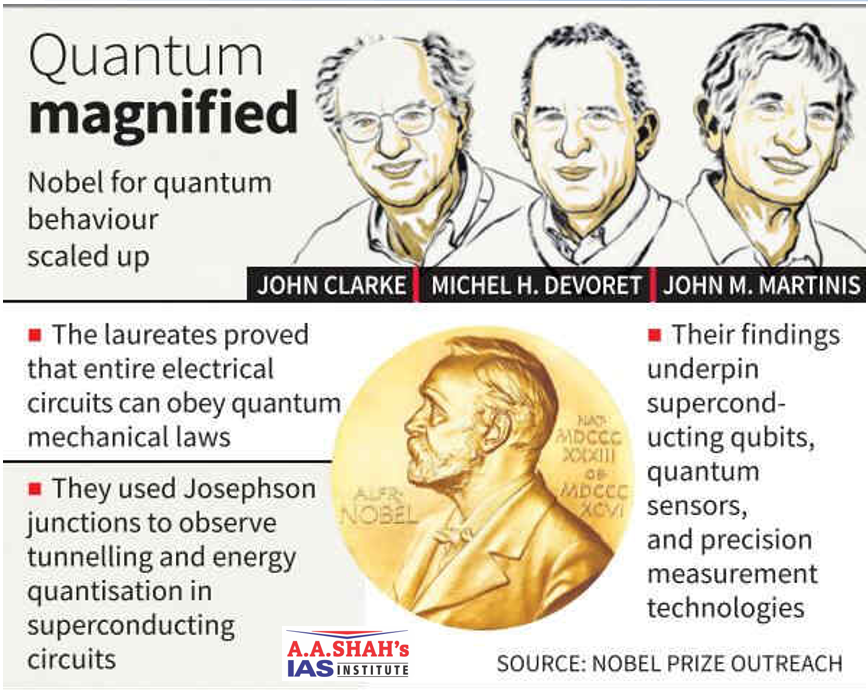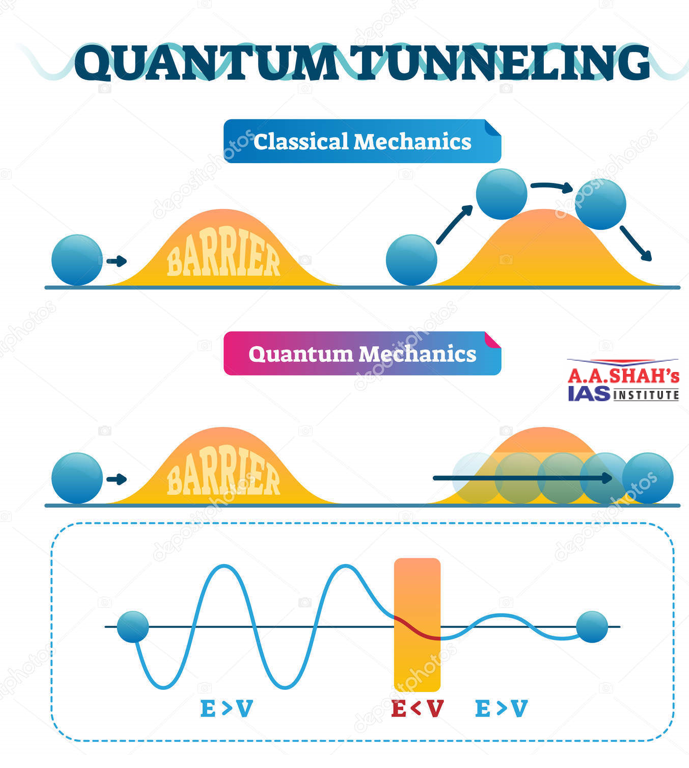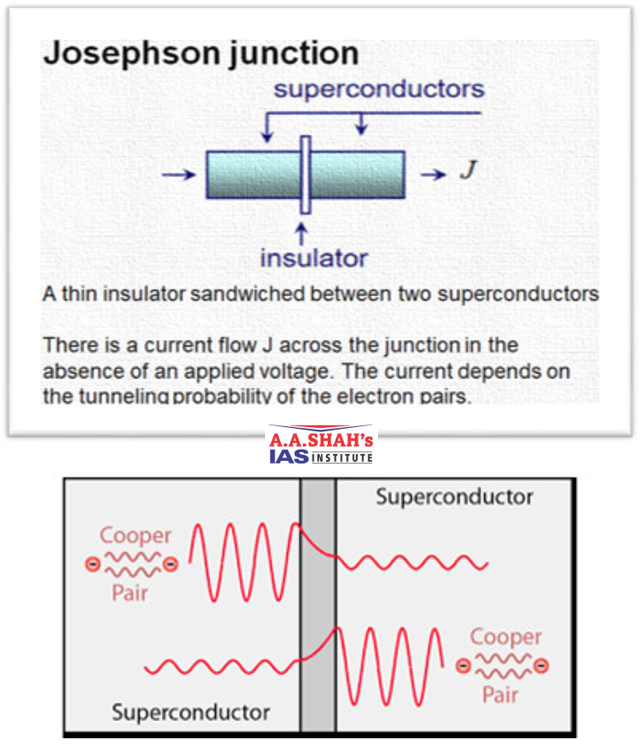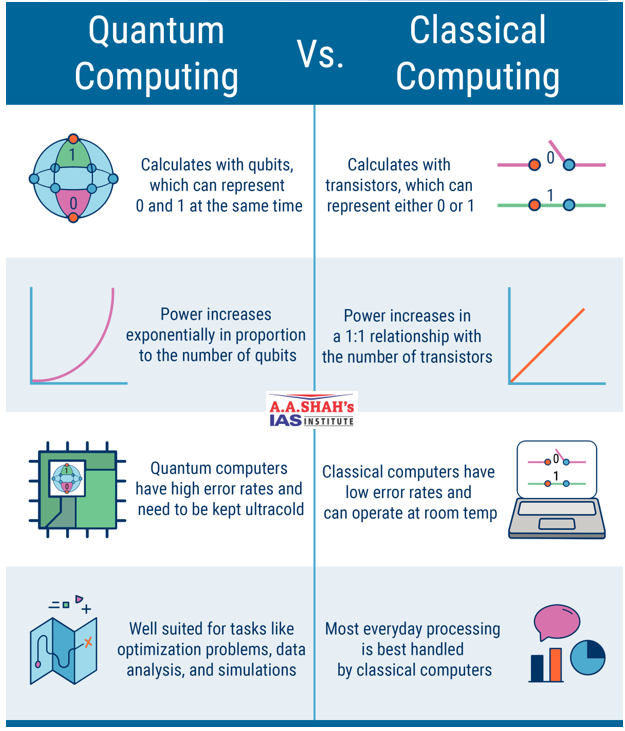Physics Nobel for building device demonstrating ‘quantum tunnelling’
S&T – NOBEL
8 OCTOBER 2025
- The Nobel Prize for Physics this year will be awarded to three scientists — John Clarke, Michel Devoret and John Martinis, the Royal Swedish Academy of Sciences said.
- The three worked together and devised experiments to tease greater insight into the workings of the quantum world: the realm of the ultra-small when objects, broken down to single, constituent particles, cease to behave in the way we ordinarily expect them to.
- One of the mind-boggling behaviours that particles are capable of here is “tunnelling”, literally, the ability of particles to pass through physical walls.
- It is as if a cricket ball hitting the pitch will surely bounce up, but the odd cricket-ball particle will simply burrow into the ground.
- Such strange behaviour cannot be observed at the macroscopic level but these scientists showed that it was possible to organise a multitude of single particles and coerce them to exhibit “tunnelling” properties.
- Quantum mechanics is the foundation of all digital technology.
- Much like early insight into quantum mechanics paved the way for transistors and silicon chips in the 1950s, the three scientists devised an electrical circuit with two superconductors, components that can conduct a current without any electrical resistance.
- They separated these with a thin layer of material — called a Josephson junction — that did not conduct any current at all.
- In this experiment, they showed that they could control and investigate a phenomenon in which all the charged particles in the superconductor behave in unison, as if they are a single ‘particle’ that fills the entire circuit. Following this, they were able to demonstrate that such a particle could be made to behave simulating the flow of electricity even without voltage, a prerequisite for the flow of current.
- Presently, quantum computers exist, with functioning non-error-corrected versions accessible to the public via the cloud, though they are not yet powerful or practical enough for widespread real-world applications.
- Major companies like IBM and Google are developing increasingly complex quantum processors with hundreds or even thousands of qubits



